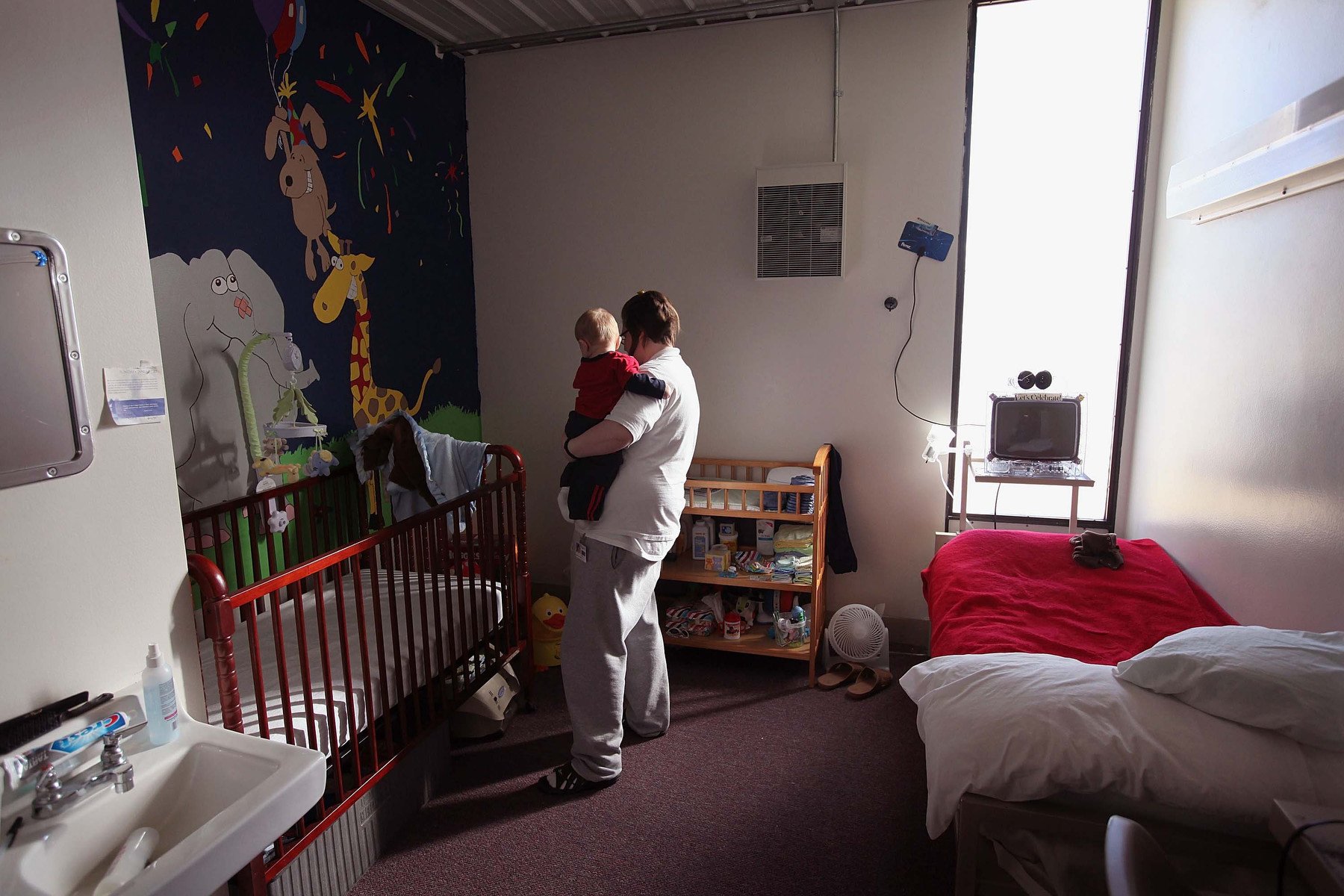Your trusted source for contextualizing the news. Sign up for our daily newsletter.
A report published Wednesday by a federal watchdog agency highlights key concerns of pregnant people behind bars, including stress and anxiety that can threaten maternal health, inconsistent access to doctors and other services, and challenges getting to pregnancy-related appointments.
The report, by the Government Accountability Office (GAO), a nonpartisan arm of Congress, also calls attention to the lack of data collection by the U.S. Department of Justice on incarcerated pregnant people in state prisons and local jails. The United States has the world’s highest incarceration rate for women and one of the highest maternal mortality rates among wealthy countries.
The GAO published its findings in response to a request from 11 members of Congress — all of them Democrats and nine of them Black women. Lawmakers asked the office to review the available data on incarcerated pregnant women and their pregnancy experiences, federal assistance that can be used to support maternal health care and other opportunities to improve maternal health outcomes.
“This report makes clear that too many pregnant women — disproportionately Black, Brown, and from marginalized communities — are left without the healthcare and support they deserve,” U.S. Rep. Summer Lee of Pennsylvania said in a statement to The 19th.
“That which gets measured gets done,” U.S. Rep. Ayanna Pressley of Massachusetts, said in her statement to The 19th. “This report is proof that we need better data to understand and confront the maternal health crisis impacting pregnant folks behind the wall. I hope this is a wakeup call for Congress to pass intentional, comprehensive policy like the Black Maternal Health Momnibus Package, including my Justice for Incarcerated Moms Act, which would protect the humanity of incarcerated pregnant people. We must move urgently to save lives.”
The GAO revealed that the federal Bureau of Justice Statistics, part of the Justice Department, does not regularly collect comprehensive data on incarcerated pregnant people in state prisons and local jails. The most recent of its reports on the subject examined data from 2016 indicating that 4 percent of people in state prisons reported being pregnant at the time of admission. Of these, 91 percent reported they received an obstetric exam and 50 percent reported they received some other form of prenatal care.
The 2016 data does not provide information about race or ethnicity, and it does not specifically address trans or nonbinary people who may become pregnant. Sources of government data often do not specifically mention LGBTQ+ people.
The GAO report states: “We use the term ‘women’ in this report based on definitions in data sources but acknowledge this term does not include all people who may become pregnant, such as people who do not identify as either male or female, and some transgender men.”
GAO investigators interviewed officials representing nine state prisons and nine local jails from across 12 states. Eight of the nine prisons and eight of the nine jails reported following guidance from professional organizations on providing maternal health care. The responses, however, revealed inconsistencies in how the facilities care for pregnant incarcerated people:
- Officials representing one of the prisons reported that a clinical dietician and medical providers assess each pregnant woman and jointly decide on appropriate nutrition. Another facility said that all people held in units designated for women receive the same food portions as those held in units for men.
- Officials representing six of the prisons and five of the jails reported that they provide care through a partnership with a “hospital, health system or government entity.” The others said they contract with a private company for medical care.
- Officials representing one of the prisons and four of the jails reported that they provide incarcerated pregnant people the option of working with a doula.
- Three of the prisons and one of the jails said their facilities operate nursery programs where eligible birthing parents can reside with their babies following delivery.
The report does not identify the prisons and jails where officials were interviewed.
Interviews with corrections officials and a review of existing research shed light on other factors that shape the experiences and health outcomes of incarcerated pregnant people. Stress from the correctional environment, isolation from loved ones or pending separation from their infants can cause increased anxiety that can complicate pregnancies.
The GAO review found that some facilities charge copayments for maternal health care, which can be a barrier for incarcerated pregnant people. Obstacles with transportation to appointments outside of the facilities can also delay or impede access to pregnancy care.
The report listed a number of recommendations, like improving data collection, eliminating copayments, adopting standardized maternal health care practices and expanding breastfeeding, lactation programs and mental health services. The Justice Department is currently working on collecting more data through a voluntary survey of state prisons, according to the report.
The experiences of incarcerated women has received increasing attention from federal officials. U.S. Sen. Jon Ossoff of Georgia, one of the lawmakers who requested the GAO review, has taken up the issue, leading multiple Senate subcommittee investigations and hearings that have provided a platform for women to share their stories. Ossoff’s office did not immediately respond to a request for comment.
Lee, in her statement, said she will continue to be an advocate.
“This is a moral failure, and we must do better. I’m committed to working with my colleagues to ensure federal grants are used to improve maternal care in prisons and jails,” she said. “We must address racial disparities in the system and ensure these women are treated with the dignity and care they deserve.”





